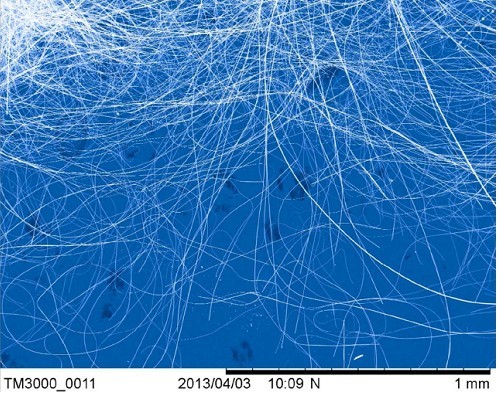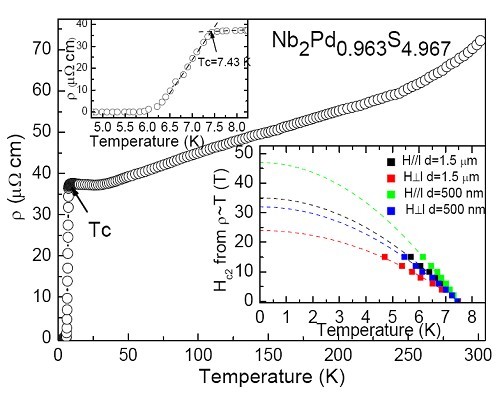Wiring systems powered by highly efficient superconductors have long been a dream of scientists, but one of the biggest practical challenges the researchers have to face is to looking for suitable superconducting materials with good flexibility. Recently, researchers from high magnetic field laboratory of Chinese Academy of Sciences made significant progress on this field.
A research group lead by Changjin ZHANG and Yuheng ZHANG successfully synthesizeda new kind of superconducting fiber which shows perfect flexibility. This new superconducting fiber, with chemical composition Nb2PdxS5-y, has typical diameters of 0.3~3 um. Superconductivity occurs ina wide range of Pd (0.6<x<1) and S (0<d<0.61) contents, its superconductivity proved very robust. Long fibers with suitable size provide a new route to high-power transmission cables and electronic devices.
Researchers investigated the superconducting properties under high magnetic field with the aim of 16 Tesla Physical Property Measurements System. Interestingly, they found that both the upper critical field and the critical current field of the fibers sharply increase with decreasing the diameter of the fiber. For example, the upper critical field of a fiber with diameter of 1.5 um is 34 T(critical current density is 0.87×106 A/cm2),while it can be over 40 T for the fiber with diameter of 0.5 um(critical current density is 1.18×106 A/cm2). These results suggest very high current-carrying capacity of the fibers under high magnetic field.
The research results entitled "Superconducting Fiber with Transition Temperature up to 7.43 K in Nb2PdxS5-y (0.6<x<1)" was recently published in the Journal of the American Chemical Society (JACS 135, 12987-12989 (2013)).
Relative link to this article: http://dx.doi.org/10.1021/ja4062079

Scanning electron microscopy image of Nb2PdxS5-y superconducting fiber, indicating perfect flexibility

The superconducting transition and upper critical field
(Image by CHMFL)